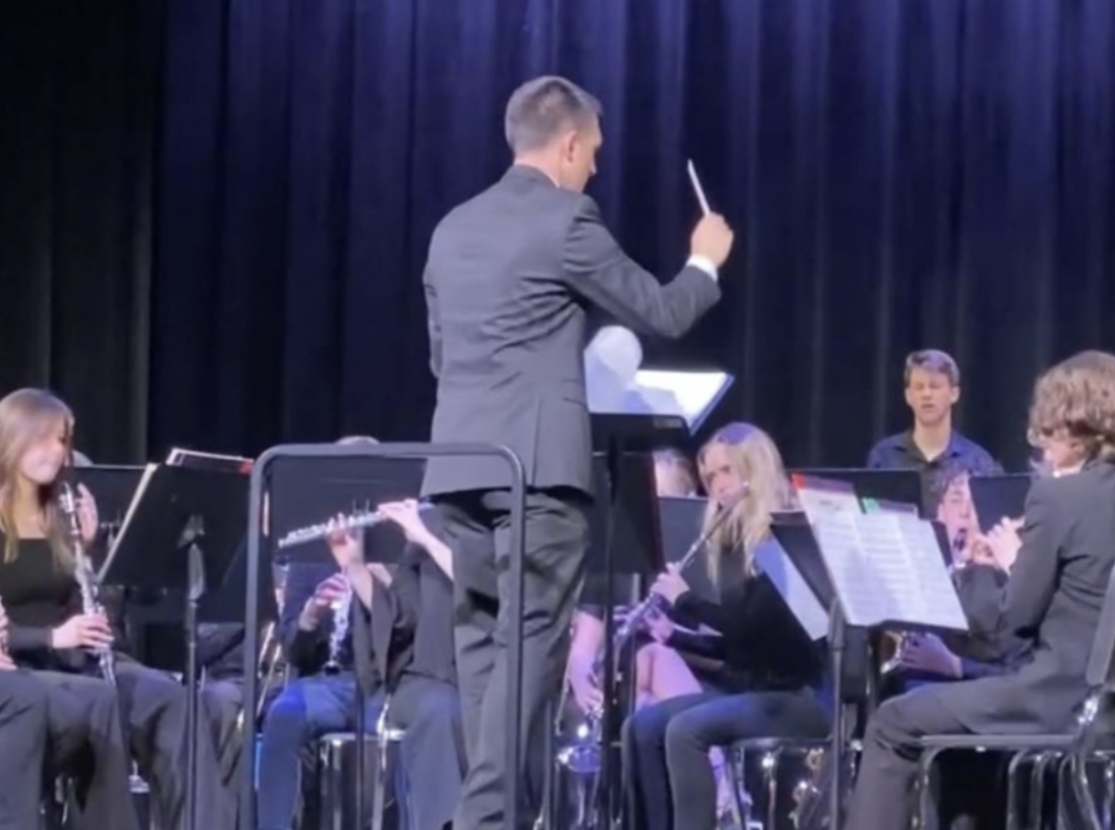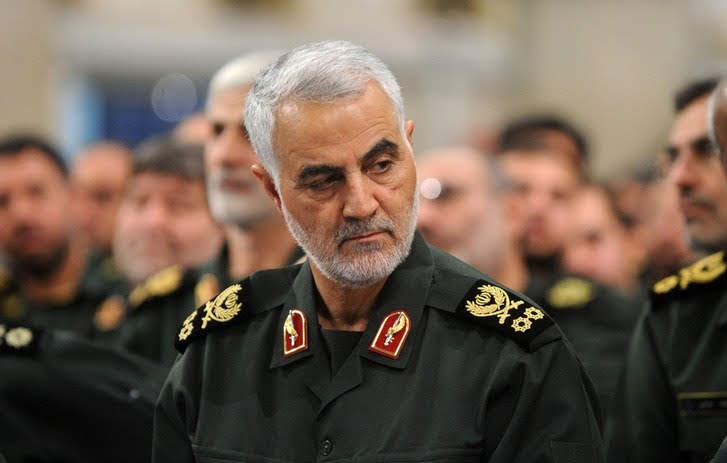Recent Death of Iranian General Heightens Tensions Between the U.S. and Middle East
Iranian Supreme Leader Press Office
Qassam Soleimani was Iran’s second most powerful figure. Having said he wished to die as a martyr, it seems he may have gotten his wish.
January 6, 2020
On Friday, January 3, Iranian General Qassim Suleimani was killed in a U.S. airstrike near Baghdad’s airport.
General Suleimani was Iran’s most powerful security and intelligence commander, considered to be the second most powerful person in the country. As the head of the Islamic Revolutionary Guards’ Qud Force, he dealt with Tehran’s proxy conflicts and worked with Iraqi and Lebanese allies to establish an axis of Shiite power throughout the Middle East. Iranians regarded him as a national hero, but he was designated as a terrorist by both America and Israel– in 2005, he was named as a terrorist and sanctioned for his support of terrorism.
The drone attack killed not only Suleimani, but at least 5 other officials. Prominent among them were Abu Mahdi al-Muhandis, a commander of Iraq’s Popular Mobilization Forces and a lifelong ally of Iran, and Mohammad Ridha Jabri, the group’s public relations chief.
The Pentagon released a statement on Friday saying it acted under the direction of President Trump, and that the strike was made in order to prevent “imminent attack.” It accused General Suleimani of planning attacks on American diplomats, embassies, and service members, including a Dec 27 attack on an Iraqi military base and a Dec 31 attack on the U.S. Embassy in Baghdad. In addition, it blamed him for hundreds of American deaths in recent months in the Iraq War due to his involvement providing Iraq with bombs and training.
Trump tweeted that the attack was made to “stop a war,” not start one. Secretary of State Mike Pompeo agreed, calling it an act of self defense on the U.S.’s part.
The assassination received mixed reactions from members of the U.S. government. Generally, Republicans supported Trump’s actions, while Democrats criticized them. Speaker of the House Nancy Pelosi pointed out that the attack was made without consultation of the members of Congress, as many had no prior knowledge of Trump’s plans. “The Gang of Eight,” a group of eight high-ranking Congress officials from both political parties, will not be fully briefed until next week.
Sophomore Helen Kahn does not agree with Trump’s actions or his neglect to inform important members of the government, which she thinks was a “bold move.” In her opinion, “what is needed is more transparency in the U.S. from the people in power to solve these conflicts. Trust in a country means it’s people knowing where we stand.”
In Iran, Suleimani’s death resulted in widespread protest from both ordinary citizens and government figures. Men, women, and children flooded the streets on Friday, calling for “death to America” and “revenge, revenge, revenge.” Protestors burned an American flag and ripped an Israel flag. Mohammad Javad Zarif, Iran’s Foreign Minister, described the strike as an act of “international terrorism” on the part of the United States; meanwhile, Iran’s supreme leader Ayatollah Ali Khamenei announced that the death of Suleimani warranted “forceful revenge.”
Where this unfolding event will lead is still unclear, but it marks the beginning of a sharp escalation in tensions between the U.S. and Iran. The U.S. government is urging any U.S. citizens in Iraq to leave as soon as possible, and is deploying nearly 3,000 additional troops to the Middle East. Experts and observers are even calling Suleimani’s assassination an “explicit act of war.”
Although it has sparked significant unrest and anger in Iran and nervous speculation in the U.S., Hingham High sophomore Christian Pederson thinks “most people are overreacting to this situation.” Contrary to the opinions of some analysts, he remains optimistic, saying that “while this event may lead to a spike in terrorist activity from jihadist reactionaries, I doubt a huge conflict is on the horizon.”
Nevertheless, however the U.S. decides to move forward in its relations with the Middle East, it must be careful. In the words of former vice president Joe Biden, the U.S. strike was like tossing “dynamite in a tinderbox”– and Iran is sure to retaliate.

































